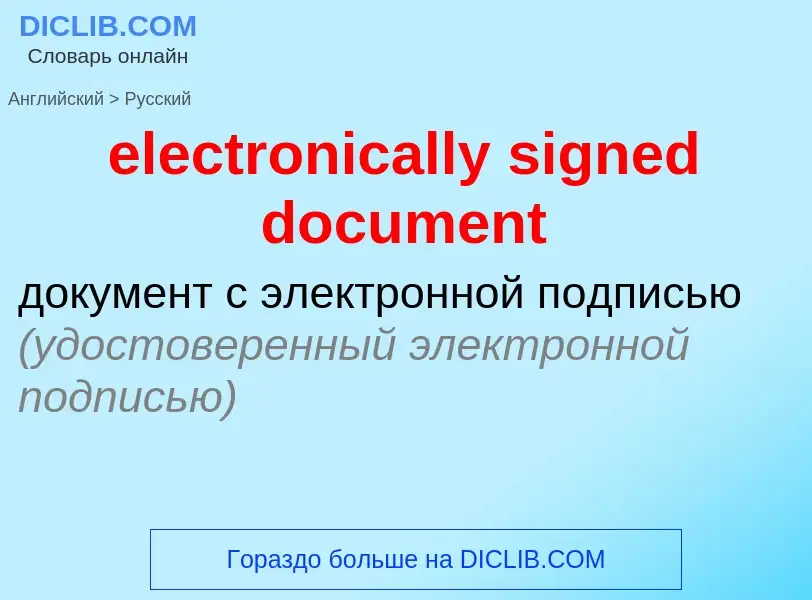Μετάφραση και ανάλυση λέξεων από την τεχνητή νοημοσύνη ChatGPT
Σε αυτήν τη σελίδα μπορείτε να λάβετε μια λεπτομερή ανάλυση μιας λέξης ή μιας φράσης, η οποία δημιουργήθηκε χρησιμοποιώντας το ChatGPT, την καλύτερη τεχνολογία τεχνητής νοημοσύνης μέχρι σήμερα:
- πώς χρησιμοποιείται η λέξη
- συχνότητα χρήσης
- χρησιμοποιείται πιο συχνά στον προφορικό ή γραπτό λόγο
- επιλογές μετάφρασης λέξεων
- παραδείγματα χρήσης (πολλές φράσεις με μετάφραση)
- ετυμολογία
electronically signed document - translation to ρωσικά
общая лексика
документная база данных
упорядоченная совокупность взаимосвязанных документов
Смотрите также
Βικιπαίδεια
In cryptography and computer security, self-signed certificates are public key certificates that are not issued by a certificate authority (CA). These self-signed certificates are easy to make and do not cost money. However, they do not provide any trust value.
For instance, if a website owner uses a self-signed certificate to provide HTTPS services, people who visit that website cannot be certain that they are connected to their intended destination. For all they know, a malicious third-party could be redirecting the connection using another self-signed certificate bearing the same holder name. The connection is still encrypted, but does not necessarily lead to its intended target. In comparison, a certificate signed by a trusted CA prevents this attack because the user's web browser separately validates the certificate against the issuing CA. The attacker's certificate fails this validation.
Self-signed certificates, however, have their own limited uses. They have full trust value when the issuer and the sole user are the same entity. For example, the Encrypting File System on Microsoft Windows issues a self-signed certificate on behalf of the encrypting user and uses it to transparently decrypt data on the fly. Another example is the root certificate, which is a form of self-signed certificate.

